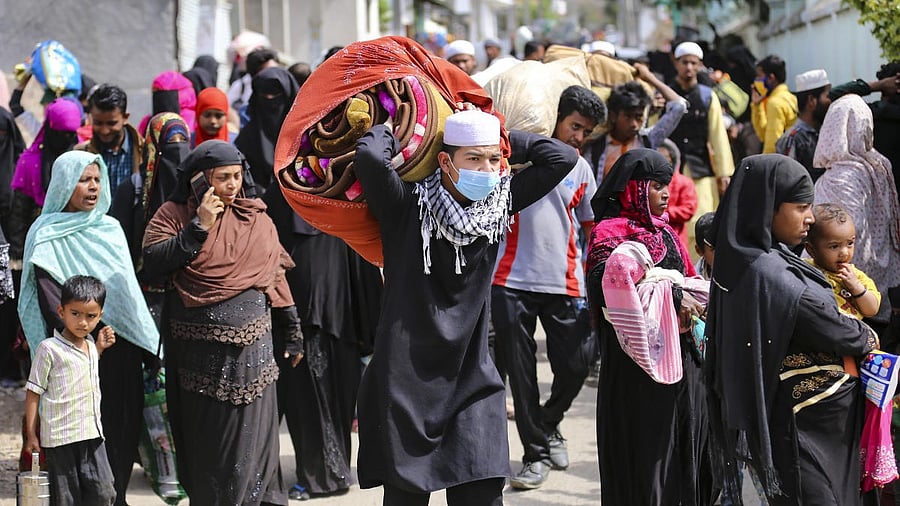
Rohingya Muslims leave their settlement for a centre following a police verification drive, in Jammu
Credit: PTI Photo
New Delhi: The Union government on Tuesday told the Supreme Court that illegal Rohingya Muslim migrants do not have a fundamental right to reside and settle in India, since as a developing country with the largest population in the world and with limited resources, priority is required to be given to the country's own citizens.
Those illegally entering to India, would be dealt with the law and in accordance with the provisions of the Foreigners Act, it said.
"Since India is not a signatory to the 1951 Refugee Convention and its Protocol relating to the Status of Refugees, it would handle the issue of Rohingyas based on its own domestic framework," the Union government's Ministry of Home Affairs said.
The Centre filed the affidavit in response to a plea filed by a petitioner, Priyali Sur, seeking appropriate directions including that of releasing detained Rohingyas.
The Centre also asserted that judiciary cannot create a separate category for granting refugee status to those illegally entering the country.
"There cannot be any recognition of refugee status outside the legislative framework and such declaration of refugee status cannot be made by judicial order. As a developing country with the largest population in the world and with limited resources, priority is required to be given to the country's own citizens. Therefore, there cannot be any blanket acceptance of foreigners as refugees especially where the vast majority of such foreigners have entered the country illegally," it said.
The government also pointed out that India does not recognise UNHCR refugee cards, which some Rohingya Muslims have used to claim refugee status.
It also raised concerns about illegal migration and activities such as obtaining fake Indian identity documents and human trafficking, which pose security threats.
“Continuance of Rohingyas’ illegal migration to India and their stay in India, apart from it being absolutely illegal, is fraught with serious security ramifications,” it said.
The government also said the grant of any status qua immigration to persons or a class of persons coming from a particular country is not just a national issue but essentially, inter alia, an outcome of political decisions of the State in respect of maintaining its foreign relations with the State in question and/or with any other foreign States.
"Such a decision is often a product of complex interplay of diverse factors such as social, economic, cultural and often extra-legal or extra judicial considerations. So, the prayers in the nature of the present which seek to alter the existing regime are not maintainable," it said.
